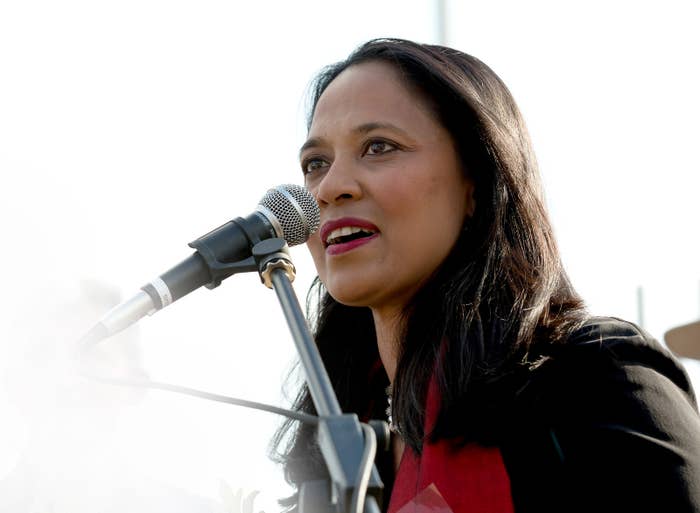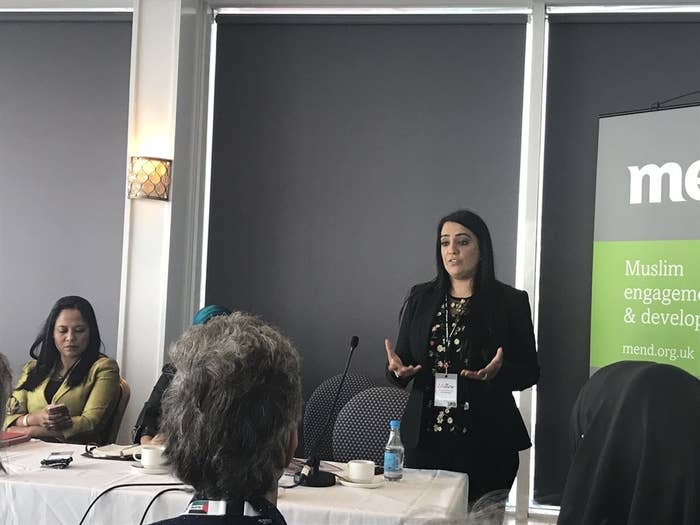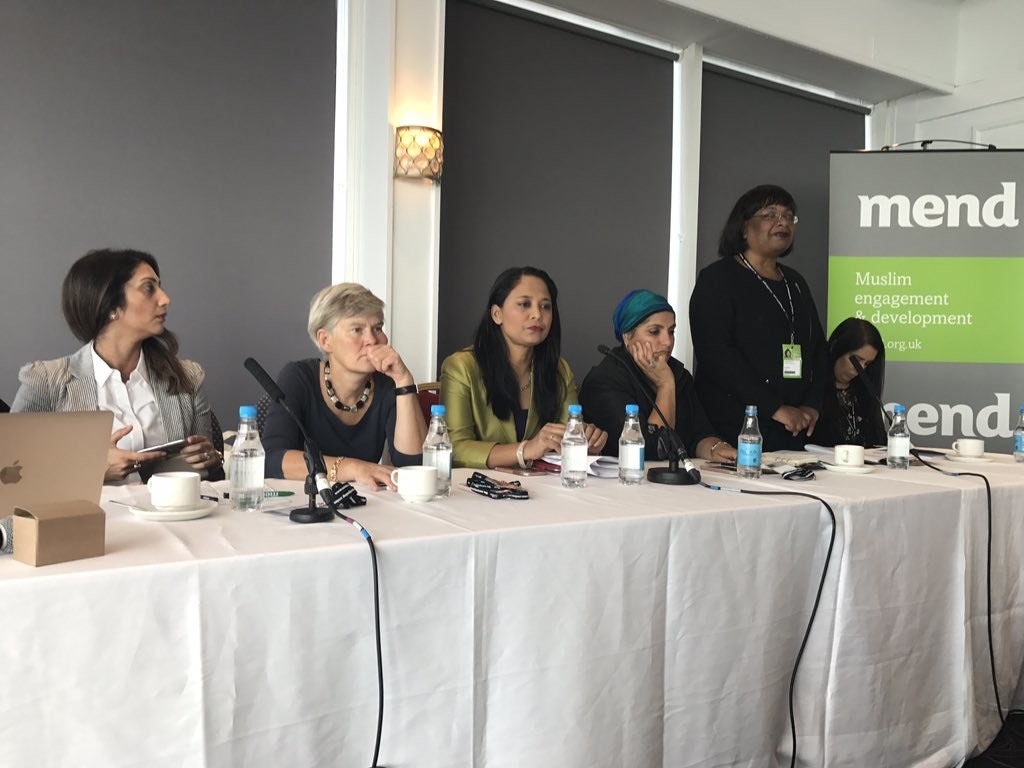
The Labour party has to speak directly with Muslim women and their families instead of relying on a historic "transactional" engagement with so-called community leaders, a senior Labour MP has warned.
Shadow home secretary Diane Abbott told a fringe event organised by Muslim Engagement and Development, a not-for profit Muslim organisation, at Labour conference on Tuesday: "Even though the tendency has been to deal with so-called community leaders when the Muslim community is under the cosh, if you like, it's women and families that bear the brunt of it."
"That old community leader-type engagement was very often too transactional," she continued. "Very often it wasn't dealing with the real issues in the community, very often it wasn't engaging with younger people – men and women."
Speaking to a packed room at an event on Muslim women's empowerment, Abbott said she was always cautious when those who weren't Muslim women spoke on their behalf.
She said: "Whether we're talking about some of the broader stigmatisation of the community, whether we're talking about discrimination in employment, whether we're talking about discrimination in an educational context, in the past we heard more from Muslim men – but it's actually Muslim women and families that are actually on that front line."

A report published earlier this year found that although there is a record number of Muslim women MPs, the “biraderi” system – where some people from the British Pakistani community vote in line with their clan – has been a barrier to participation for young people and women in some Muslim communities, particularly in local politics. The Missing Muslims report urged political parties to sign up to a code to stop Muslim women being locked out of public life by patriarchal clan politics.
Naz Shah, the MP for Bradford West, said that as well as the external pressure she encountered as a Muslim woman, she also faced patriarchal cultural politics in her own constituency. Shah, a vocal campaigner for women's rights, said she'd faced "slut-shaming and hijab-shaming" ahead of June's snap election, at which she increased her vote by 10,000.
Shah said the campaign became a "Muslim woman pitched against another Muslim woman", and referred to her opponent, the former Respect leader Salma Yaqoob, as "George Galloway version two in a hijab from Birmingham".
Rushanara Ali, the Labour MP for Bethnal Green and Bow, said her job as one of the first three Muslim women elected to the Commons was to make sure the next generation did not find it as hard to get into Westminster.

To deliver this, Ali said, the party had to face down "men protecting their power base and interests", and she called on her colleagues to call it out.
She continued: "Don't be under any illusion [that] it's not going to keep going, even if we have a very positive leadership and very positive team that wants to see change.
"When BAME [black, Asian, and minority ethnic] candidates get deselected, that is not OK, and we fought really hard to get women elected and BAME candidates elected."
Ali added: "If I see that going on, I want to see white men and women taking a stand and saying that is not OK, that's not our way. That's not the Labour party. We're not going to have people bullied and intimidated."
The call comes just three months after an election that had the highest turnout in 25 years thanks to a huge boost from young people and BAME voters. The Labour party's share of the BAME vote rose six points compared with 2015, to take 73% of the vote.
Kate Green MP, the former shadow women and equalities minister, said the party had to make sure the potential of young Muslim women was not wasted. She cited a report that showed Muslim women are 71% more likely than white Christian women to be unemployed, even when they have the same educational and language skills.
"For the Muslim community in Britain today, a community that does suffer economic disadvantage and social exclusion," she said, "it seems to me that investing in the women in the community is going to bring big paybacks for us all, more quickly than any other form of investment will."
